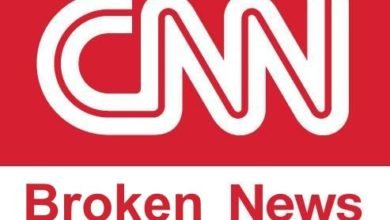College Conservatives Battle with the Suppression of Free Speech: 5 Outrageous Censorship Incidents
In a time when censorship is all the rage, one organization is doing its part to attempt to combat censorship on college campuses and provide a way for intellectual diversity to thrive.
The Intercollegiate Studies Institute (ISI) endeavors to facilitate a vibrant community for students, faculty, and alumni to learn foundational American principles and offer an intellectual community in which to discuss and debate. After speaking with ISI’s president, Charlie Copeland, by phone interview, his mission for providing an avenue for conservative and libertarian college students to succeed in diversity of thought was evident.
As a recent college graduate myself, the instances Copeland passionately relayed struck a chord with some of my own college experiences. The Econ Journal Watch published a study in 2016 which found Democrat professors outnumber Republican professors 3,623 to 314, or by a ratio of 11.5 to 1. Finding myself being a conservative minority in a sea full of liberal students and professors is not specific to me, but a reality for thousands of conservative college students across the country.
ISI boldly cultivates an atmosphere where the importance of having a vibrant marketplace of ideas is still a possibility for future freethinking students and faculty.
Blacklisted at Gonzaga University
ISI attempted to debate the question, “Why Bother with a Liberal Arts Education?” Copeland explained that ISI desired to bring a well-rounded debate to campus by inviting George Mason University Professor Bryan Caplan to argue liberal arts study is unnecessary, Clemson University Professor Brookes Brown to refute, and Utah State University Professor Harrison Kleiner to act as moderator.
“ISI asked Gonzaga for space to host the event, apparently even willing to pay a rental fee. Gonzaga rejected the request, refused to provide an explanation why, and denied the organization’s plan to advertise the event on campus,” Richard Vedder reported in Forbes.
Copeland relayed that the Gonzaga administration even sought to collect the names of students and faculty that were in connection to the proposed event.
“At this point, we were beginning to feel like this could be a potential blacklist,” Copeland said.
Despite these obstructions, ISI was determined to continue with the event and rented a hotel room nearby. Approximately 100 students ended up attending, and others streamed the event via Facebook live.
Oppressions of “Whiteness” Panel at Notre Dame
The University of Notre Dame stirred controversy when they held a panel in January 2018 called “Confronting Whiteness at Notre Dame: Power, Identity, and Exclusion.” This panel referred to whiteness as a “social and political construct that harms the university community.”
Discussion moderator David Anderson Hooker, who ironically maintains the title of professor of practice of conflict transformation and peacebuilding, started off the event by stating, “The illusion of whiteness as related to racial categorization disguises what is actually most important… namely, white is a description of both a political condition and a mechanism for the distribution of power. While it has real relation to the concept of racism, the two don’t squarely overlap.”
Ph.D. student of sociology Emmanuel Cannady stated, “Black folks, you know what whiteness is because it is thrown in your face. All day, every day, you endure it…. We’re confronting a system of domination.”
According to the Irish Rover, when the event was concluding with a question and answer session, a white man with an apparent foreign accent began to introduce himself with the given microphone. That is when Notre Dame Africana Studies and Political Science Professor, Dianne Pinderhughes, interrupted him by yelling, “white privilege!” This was followed by cheering from the audience.
“Instead of having a panel, it seemed to have turned into a one-sided gripe session. These professors have achieved the pinnacle of success at one of the World’s top, elite universities, they could celebrate that achievement, but choose to search for non-existent strawmen to attack.” concluded Copeland.
This event appeared to be created with the sole intent to create divisiveness and strife among the student body. The faculty seemed eager to bind together to portray one narrative rather than to have a true panel discussion.
Death Threats at Wake Forest University
A Wake Forest University student, Jordan Lancaster, found herself the target of death threats and was called a “Nazi” on social media after her response to a “build the wall” joke on Twitter.
A separate student posted a picture of a fake presidential candidate captioned, “Let’s build a wall between us.” The picture suggested the building of a wall between Wake Forest and its near rival Winston-Salem State University according to the College Fix. Outraged ensued due to Winston-Salem’s status as an historically black university and Wake Forest decided to investigate the post that was labeled “deeply offensive.”
Lancaster’s post suggested that she felt the university’s extreme response was over-reactive and wrote, “Ppl in college need to grow up.”
This meager tweet brought on an abundance of violent responses by internet trolls, some even calling for her death.
Adam Goldstein, program officer in the Individual Rights Defense Program, weighed in and wrote, “No one believes the Instagram post was conduct, as opposed to satire… Does Wake Forest know that, historically, witch hunts haven’t gone well in places named Salem?”
Could Lancaster’s tweet over the joke be deemed inappropriate? It’s debatable. Was it worthy of an onslaught of death threats? Certainly not.
Tyranny of the Liberal Majority at Michigan State
In February, members of the General Assembly of the Associated Students of Michigan State University (ASMSU) sought to have a student representative removed after he aimed to encourage conservatives to run for the student government. The student, Sergei Kelley, found himself embroiled in controversy over the use of the ASMSU watermark in his email signature.
“I do not think I have broken any code violations… there is no ASMSU logo on the referenced Conservative Wave Plan… but rather on emails I have sent to certain people who use the same email signature I use in all my emails, which includes my position as a student representative,” Kelley said according to The Morning Watch. “I didn’t misrepresent ASMSU because I am one representative, not the whole [General Assembly] GA.”
Bill 55-55 ultimately failed when it was voted on. However, the student government later passed a bill that defined inappropriate acts as “physical violence, personal attacks of a severe and/or pervasive nature, harassment and discrimination, or the misrepresentation of a constituency.” Basically, this bill states that if you beat someone up or use the student government logo with your email signature, as Kelley did, you are subject to suspension and hysteria.
Pitzer College Banned Student Newspaper from Attending Israel Vote
The Claremont Independent, a registered student club on campus, was informed that they were barred from attending a Pitzer College Council meeting. The governing body, which is comprised of both faculty and staff, was voting in March on whether to suspend Pitzer’s only study abroad program in Israel. This was the same Pitzer faculty who just happened to have voted in favor of suspending its study abroad in Israel in support of the Boycott, Divestment, Sanctions (BDS) movement, according to the Claremont Independent.
An editor from The Independent contacted the Pitzer’s Office of Communications and originally received confirmation that they were, in fact, allowed to attend. Later on, The Independent sent the Office of Communications a list of staffers who would be in attendance. This is when Pitzer spokesman Mark Bailey wrote that the initial response was an oversight and that attendance would be offered strictly to “students, faculty, staff and members of The Student Life staff.
The Student Life just so “coincidentally” is a left-leaning publication, while The Independent is far more popular than any other publications at Claremont Colleges.
Copeland relayed his thoughts on the situation, concluding that “This is an example of viewpoint censorship where they (Pitzer College Council) want to surround themselves with only supporters.”



